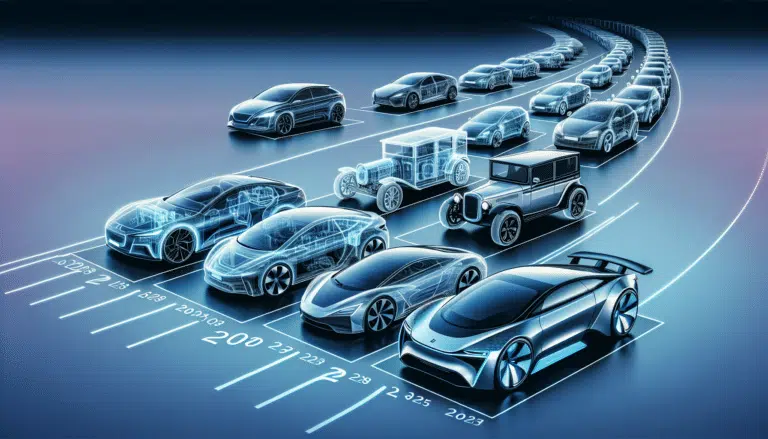Deductions for car expenses for freelancers and individuals in the Income Tax Declaration

The Income Tax Declaration is an essential procedure for over 20 million Spaniards, where one of the most debated aspects is the possibility of deducting expenses related to the car. Both self-employed individuals and private individuals can benefit from tax deductions, but the rules vary significantly depending on the activity and the use of the vehicle. Understanding how these deductions work is crucial for optimizing the tax burden and making the most of the possibilities offered by the Tax Agency.
The Income Tax Declaration is a process that concerns over 20 million Spaniards annually, especially regarding expense deductions. One of the topics that generates the most questions is the possibility of deducting expenses related to the use of a car. Below, the guidelines and conditions for carrying out these deductions are explained, both for self-employed individuals and private individuals.
Obligations of taxpayers
Until June 30, taxpayers who have received more than 22,000 euros from a single payer or 14,000 euros from multiple payers are required to file their declaration. This includes those who receive minimum vital income regardless of the amount. The submission can be done online, by phone, or in person, always requesting an appointment in advance if choosing the latter.
Deductible expenses for self-employed individuals
Self-employed individuals can deduct the income tax from the purchase of a new car or its rental, as well as expenses for fuel and maintenance, but only if the vehicle is used exclusively for professional activity. This means that, in the case of those who work in transportation, the deduction will be valid; however, most professionals who use the car during their workday will not be able to do so unless they can prove that it is not used for personal purposes.
Practical example of deduction
Consider the case of a technician repairing appliances who uses their car to travel to different jobs. Despite their activity, they will not be able to deduct the income tax because it is understood that they also use the car on their days off for personal uses. This makes the deduction difficult to justify before the Tax Agency.
Deduction of VAT on fuel and maintenance
To be able to deduct the VAT on fuel and maintenance expenses, it is crucial that the car is linked to the economic activity. The deduction can be 50% or 100% of the total, depending on the professional use of the vehicle. Generally, it will be 50%, except in specific activities where total deduction is allowed, requiring strict justification of the vehicle’s use and the mileage driven.
Criteria of the Tax Agency
The Tax Agency has strict criteria for allowing the deduction of income tax. It allows up to 50% of vehicle expenses to be deducted if the invoice is in the name of the self-employed individual. To deduct 100% of the VAT, the VEHICLE must meet specific requirements, being essential that it is related to certain activities, such as industrial transport, surveillance, or car rental, among others.
Activities that allow the deduction of 100% of VAT
Below are some of the activities that allow the deduction of 100% of VAT on the purchase of a vehicle:
- Industrial or goods transport.
- Passenger transport services for remuneration.
- Driver or pilot training services for remuneration.
- Testing, trials, demonstrations, or sales promotion by manufacturers.
- Professional trips of representatives or commercial agents.
Purchase of a new car
For those who purchased a new car in 2021, there is the possibility of deducting VAT if the vehicle is used for a professional activity. Self-employed individuals can deduct 50% of the depreciation fees and interests paid during the year of the declaration, as well as 50% of the VAT. This includes different purchase modalities, including renting and leasing.
Rights of specific collectives
Collectives such as transporters or taxi drivers are entitled to deduct 100% of the VAT on fuel, as well as the total VAT paid on the purchase of a new vehicle. It is important that the vehicles are registered in the name of a natural person.
Deductions for people with disabilities
The purchase of a car intended for the transport of people with disabilities, whether the driver or a dependent family member, grants the right to deduct up to 50% of the VAT from the purchase invoice. A reduced VAT rate of 4% is applied instead of 21%. However, used cars or zero-kilometer cars that are already registered do not qualify for this reduction.
Company vehicles
For the tax authority, a company car is considered part of the employee’s salary. The company can deduct up to 20% of the annual purchase cost if it is in its name. On the other hand, the employee must pay taxes if they use the car for personal purposes, as it is classified as employment income.
Benefits of energy efficiency
Vehicles with Label 0 can deduct up to 15% of their cost in the Income Tax Declaration, with a maximum of 3,000 euros. The more efficient the car, the less tax the employee pays. Thus, if emissions do not exceed 120 g/km, a 15% reduction applies, and this percentage increases to 30% for energy-efficient vehicles.
For more information about the economic benefits of energy efficiency, consult the following link: Economic benefits of energy efficiency.
It is essential to be clear about the specific conditions to access these deductions, as well as to keep track of the expenses linked to the vehicle, especially concerning the economic activity carried out. If you want more information about government initiatives that promote energy efficiency, visit: Government initiatives to promote energy efficiency.
Another important consideration is the deduction of electric and hybrid vehicles. If you are looking for how to deduct an electric or hybrid car, check this link: Do you know how to deduct an electric/hybrid car?. Finally, it is crucial to be informed about the potential hidden dangers that electric cars may have. You can learn more about this here: Attention: Do you know the hidden dangers of electric cars?.
The tax deductions related to car expenses are a crucial aspect for self-employed individuals and private individuals when filing the Income Tax Declaration. Understanding how to make the most of these deductions allows for optimizing the tax burden and, consequently, improving each taxpayer’s financial situation. However, it is essential to comply with certain criteria set forth by the Tax Agency to benefit from these deductions.
For self-employed individuals, it is fundamental to know that they can deduct expenses related to the purchase, rental, and maintenance of the vehicle, provided it is used exclusively for professional activities. The deduction of VAT can reach up to 100% in certain cases, and it is vital to keep a thorough record of the vehicle’s use, including expenses on fuel and mileage to justify the deductions before the Agency.
On the other hand, private individuals must also consider that the limits of deduction vary according to each individual’s circumstances. If they have received income from a single payer exceeding 22,000 euros or 14,000 from multiple payers, they are required to file a declaration. However, car expenses are not deductible in all cases, so it is essential to be aware of the regulations and conditions that apply.
Finally, the possibility of deducting up to 50% of vehicle expenses significantly enhances the economic management of this asset. This is especially relevant in professions where the use of a car is essential. Thus, understanding and correctly applying these tax deductions not only helps comply with regulations but also translates into significant savings for taxpayers.



